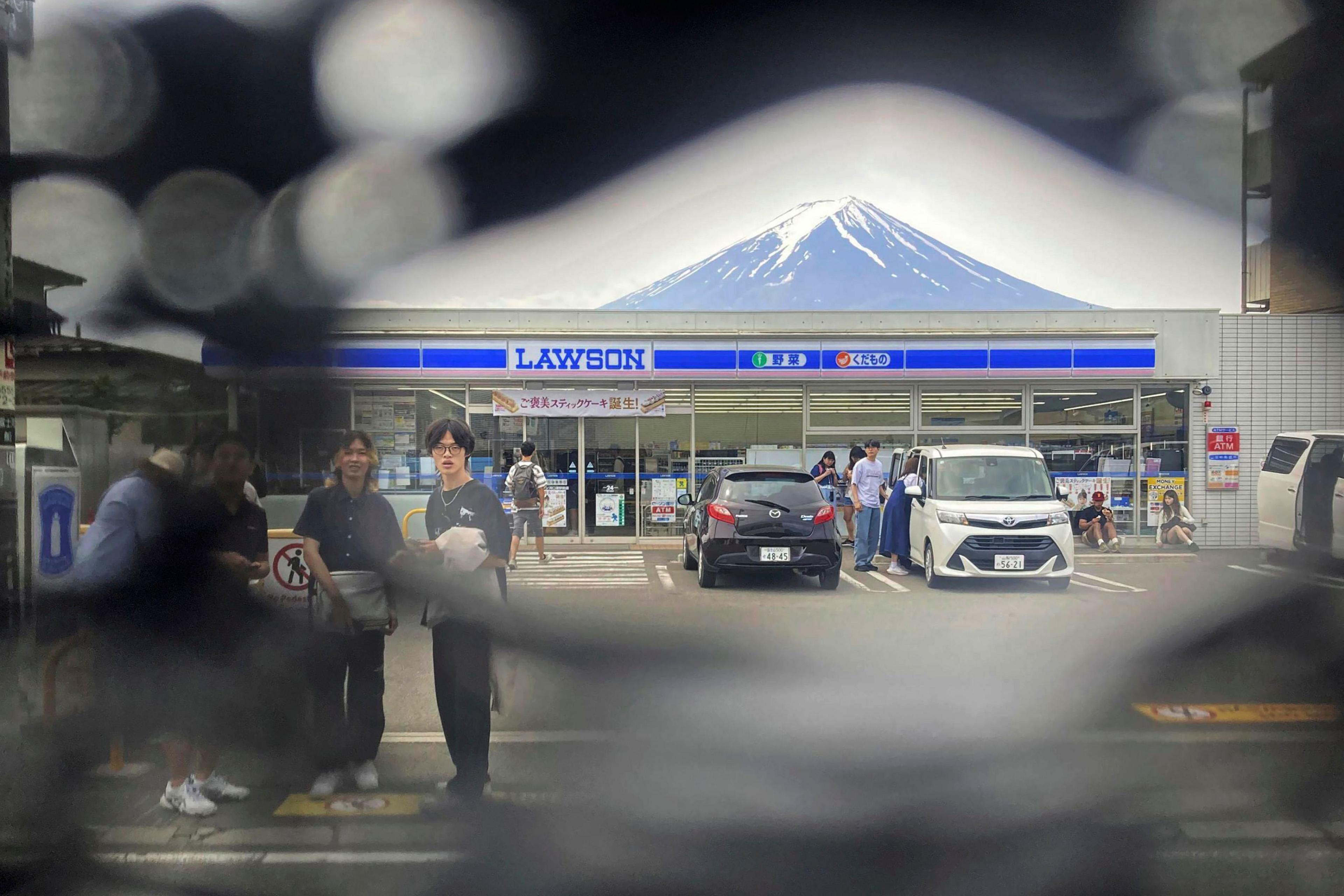Camera-sized holes appear in Mount Fuji barrier

- Published
You might remember that a lake town in Japan put up a barrier to stop tourists from taking photos of Mount Fuji.
Well, Japanese officials have said they've now found holes in the barrier - each of them just about the right size to fit a camera lens through.
More stories from Japan
- Published4 January 2023
- Published19 January
- Published2 March 2021
Lake Fujikawaguchiko is an idyllic spot in Japan close to Mount Fuji, and so has fantastic views of the dormant volcano.
In particular, there's a popular spot for tourists where Fuji can be seen above a branch of Lawsons, a famous grocery shop in Japan.
Its popularity became a bit of a problem for locals - people were leaving lots of rubbish behind, blocking traffic in the road, and even climbing on the roof of nearby businesses to get the perfect photo.
Lawson is one of the three most popular convenience store brands in Japan - there, they're called 'conbinis'
The solution? A barrier was put up to block the view.
The town spent 1.3 million yen (拢6,485) on the screen which is 8.2ft high (2.5 metres) and 66ft (20 metres) long.
But within a week, ten holes have been found in the mesh, all of which can fit a camera.
Even with the holes, officials in the town have said the net has helped ease the pressures of overtourism in the town.
What is overtourism?
Tourism is when people travel from where they live to another place to enjoy themselves or relax.
But when too many people visit the same place, it can start to cause issues for the area and the people living there, such as by increasing litter or pollution.
Venice only has a population of around 50,000 but plenty more tourists flock there every year
Venice in Italy is another place that has faced issues caused by tourism.
Officials there recently introduced a fee that day-tripping tourists will have to pay at peak times in the year.
Venice is a Unesco World Heritage Site, which means it's an important and historic site that needs to be looked after.
Tourists are now charged five euros if they're just coming for a day trip, but won't be charged if they're staying in the area or have a home there.
More on this and other stories
- Published18 May 2023
- Published21 May
